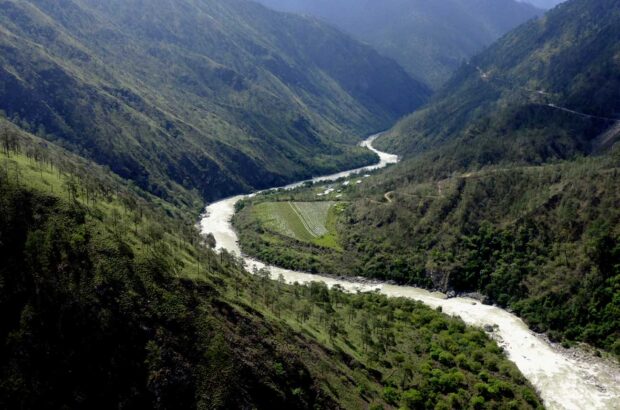Opponents of the controversial Mosel Bridge project are hoping the German Green Party’s spectacular recent successes at the polls will swing the debate their way.
Artist’s impression of the Mosel Bridge
Sarah Washington, spokeswoman for opposition grouping Pro-Mosel, said federal transport minister Peter Ramsauer might use the new balance of power to drop the project.
The four-lane, 1.7km bridge has attracted vehement opposition from prominent Mosel producers like Ernst Loosen, to veteran wine writers such as Hugh Johnson and Jancis Robinson, who say it would desecrate ancient vineyards.
The Green party has taken power from Angela Merkel’s conservatives in Baden-Württemberg, one of Germany’s richest states, and won 15.4% of the vote in Rhineland-Pfalz, where the bridge project is located.
The Greens are now in the kingmaker position, being able to hold talks with both major parties, Washington said. For the first time they will have real power, being able to vote in Germany’s upper house, the Bundesrat, and veto legislation.
‘Even current Rhineland-Pfalz state premier Kurt Beck acknowledged last night that infrastructure projects would have to be the first thing to give way in upcoming coalition talks with the Greens,’ she said.
Mr Ramsauer has already threatened to pull the plug on the Mosel bridge, stipulating last year, in light of austerity measures, that projects with a cost-benefit ratio of less than 4:1 would not be approved. The Greens at the time claimed the bridge would yield €1.80 for every €1 spent, far below the original 1992 estimate of €3.4 to €1 generated.
‘The key thing now is the Greens have leverage,’ Washington told Decanter.com. ‘My feeling is that federal government has recognised that the bridge is uneconomic and will use this situation as an excuse to pull the plug, and redistribute the cash.’
She noted also that in recent talks local politicians had seemed keen to distance themselves from the plans, claiming it was a federal, not a state government project.
If the bridge were to be halted, the issue of compensation would have to be addressed, though it is unclear at the moment what level of compensation would have to be paid.
She added, ‘We won’t be celebrating though until it is clear that it is well and truly buried. Then we can begin to develop plans to transform the land for the motorway into a public art attraction worthy of global interest.’
Written by Adam Lechmere







